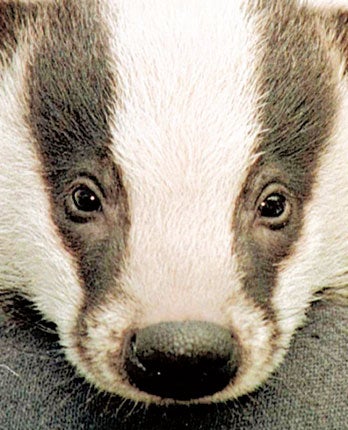Caroline Spelman fires starting gun on badger cull

Your support helps us to tell the story
From reproductive rights to climate change to Big Tech, The Independent is on the ground when the story is developing. Whether it's investigating the financials of Elon Musk's pro-Trump PAC or producing our latest documentary, 'The A Word', which shines a light on the American women fighting for reproductive rights, we know how important it is to parse out the facts from the messaging.
At such a critical moment in US history, we need reporters on the ground. Your donation allows us to keep sending journalists to speak to both sides of the story.
The Independent is trusted by Americans across the entire political spectrum. And unlike many other quality news outlets, we choose not to lock Americans out of our reporting and analysis with paywalls. We believe quality journalism should be available to everyone, paid for by those who can afford it.
Your support makes all the difference.Badgers will be shot in a bid to limit the spread of TB in cattle, the Government is expected to announce today.
Groups of farmers will be licensed to organise the widespread shooting of badgers in the West Country, the worst-affected region, where nearly a quarter of all cattle farms were hit by tuberculosis infections last year.
Caroline Spelman, the Environment Secretary, will make the announcement in the House of Commons following nearly 15 years of argument over links between badgers and the disease.
If pilot schemes are successful, it means that thousands – and potentially tens of thousands – of badgers will be culled in an operation which will last at least four years and which will be carried out at farmers' expense.
The long-awaited decision, which reverses the previous Labour government's policy, will be politically controversial and may even lead to problems of public order, with animal rights activists attempting to disrupt shoots.
The Government has hesitated, mindful of recent presentational disasters from Mrs Spelman's Department for Environment, Food and Rural Affairs (Defra) over proposals to sell off the public forests and to ban wild animals in circuses.
The decision has been taken in the face of opposition from critics ranging from Sir David Attenborough to Lord Krebs, the senior scientist who wrote the first report on the badger-TB link in 1997, and who said last week that a badger cull would be a mistake.
But it will be warmly welcomed by livestock farmers, who have been pressing for a cull with the disease continuing to spread despite the official biocontrol measures of cattle testing, slaughter and movement restriction. More than 25,000 TB-infected cattle had to be slaughtered last year.
There is broad scientific consensus that badgers do form a reservoir of tuberculosis and do spread it to cattle; the argument has been over whether a cull would be effective. A group of experts brought together by Defra agreed that a cull would reduce the incidence of the disease in cattle herds by between 12 and 16 per cent. However Lord Krebs said that a policy which left "85 per cent of the problem still here" did not seem to be an effective way of dealing with the disease.
The Government has been considering running two pilot schemes in Devon and Gloucestershire, the counties worst hit. There has been no proper testing of the method likely to be employed, the shooting of free-roaming badgers by trained marksmen.
"The decision to cull will go against all the scientific evidence, with an untried and untested method which is likely to cause immense suffering, as badgers are very hard to shoot," said David Williams, chairman of the Badger Trust. Another concern is that any survivors of a partly culled family of badgers will roam off, spreading TB and making the situation worse.
THE long debate over a cull
1997 Professor John Krebs, zoologist at Oxford University, completes a study on badgers and TB in cattle. He recommends a trial to see if culling badgers would curb the disease.
1998 Randomised badger culling trial is established.
2003 Culling is suspended when it is found that "perturbation" – survivors of partly culled badger families wandering off – is actually increasing cases.
2007 Final report of trials firmly rejects the idea of a cull.
2008 Government chief scientist Sir David King rejects report and says cull should go ahead. Environment Secretary Hilary Benn rejects idea of a cull.
2010 Farming minister Jim Paice says new Government proposes to allow cull.
Join our commenting forum
Join thought-provoking conversations, follow other Independent readers and see their replies
Comments